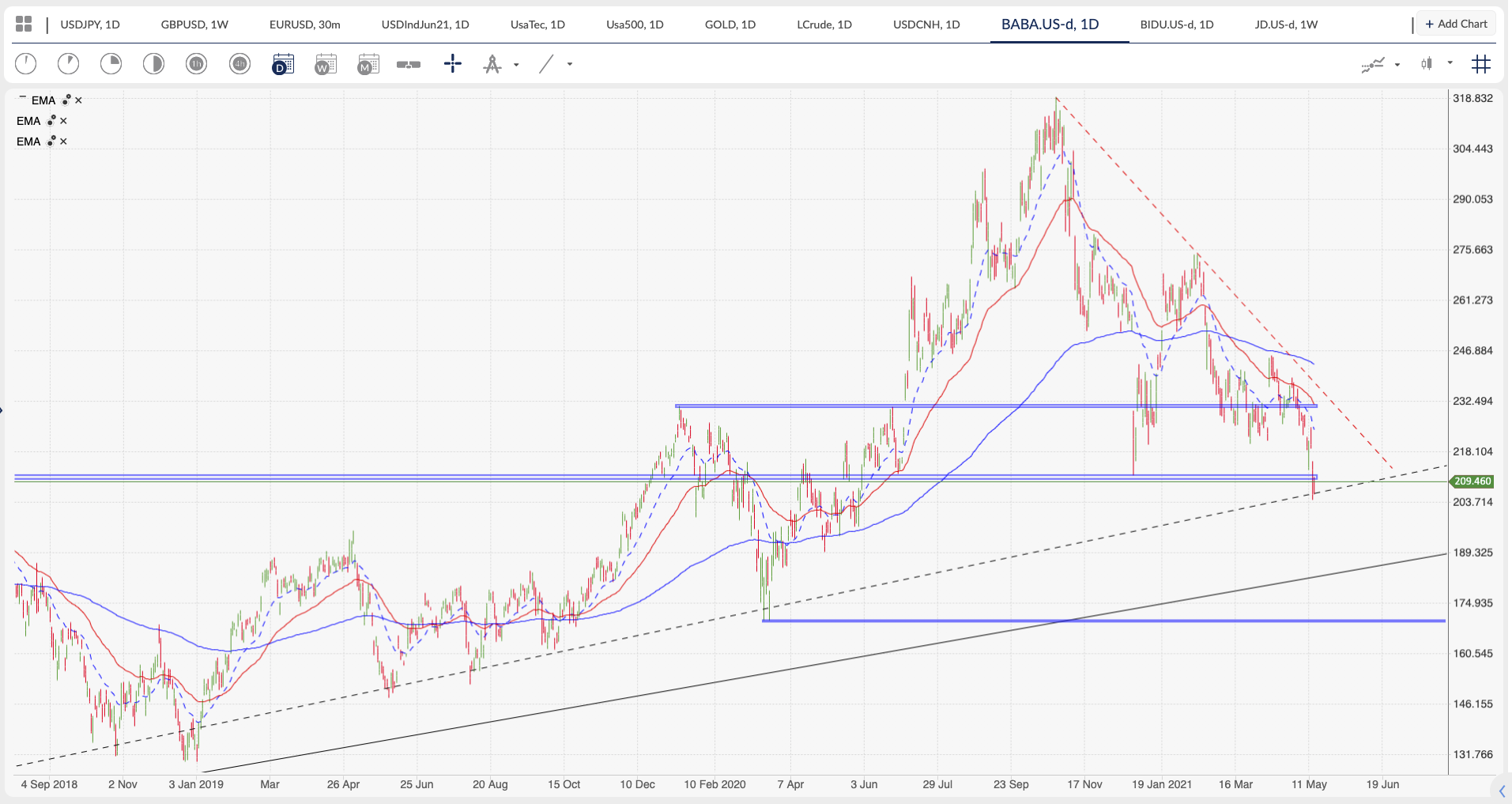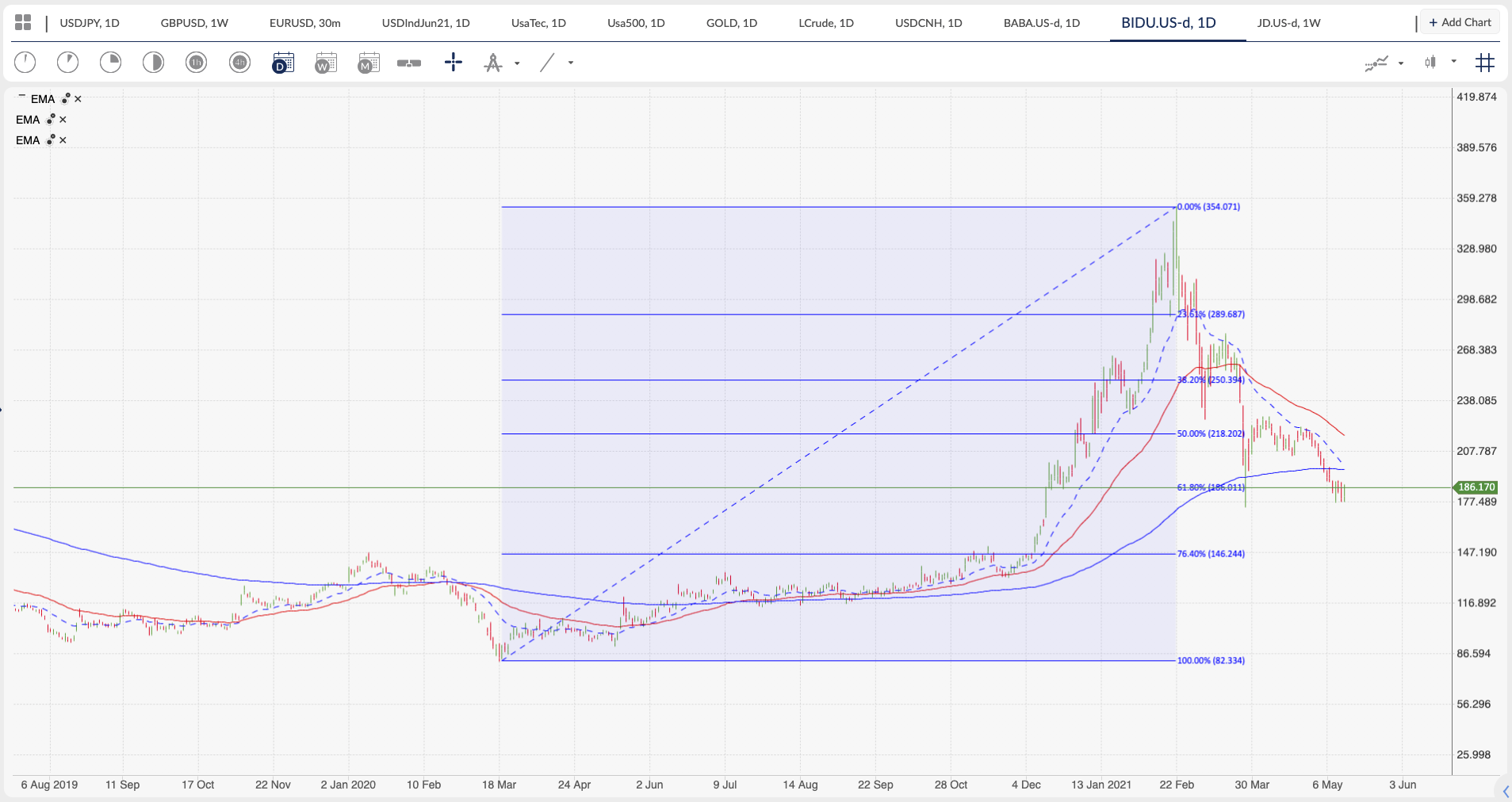Alibaba Weekly Investment Idea
The ‘Open Sesame’ definition is ‘free or unrestricted means of admission or access.’ Something that has been lacking this last 6 months in Chinas tech stock giants.
On the 3rd of November 2020, the largest ever Initial Public Offering (IPO) the world could have ever witnessed, did not make it to market, due to an 11th-hour decision by the Chinese authorities. The IPO had attracted $3 trillion from retail investors and if it had gone ahead as planned it would have taken the title of most valuable IPO from Saudi Aramco.
The financial technology company Ant Group never made it to the Hong Kong or Shanghai exchanges as founder Jack Ma, China’s 3rd richest man, clashed with the Chinese financial regulator. The billionaire publicly snubbed China’s financial regulatory system during a Shanghai conference on October 24. In his speech, he was disparaging towards the regulators calling them “an old man’s club.”
Within a week Chinese regulator’s introduced new tougher measures on online lending, which cut to the core of Ant Groups lending and credit business. The new regulations were deemed to have been too much of a risk and officials said there were “major issues” with Ant’s listing under the new rules, and the Shanghai exchange suspended the Ant Groups IPO on November 3rd, 2020.
Jack Ma came to prominence through his company Alibaba, which capitalised on the rising popularity of the internet in the late 90’s and survived the dot.com crash. Alibaba’s IPO in 2014 raised the full $25 billion, the largest offering at the time in the US’s financial history.
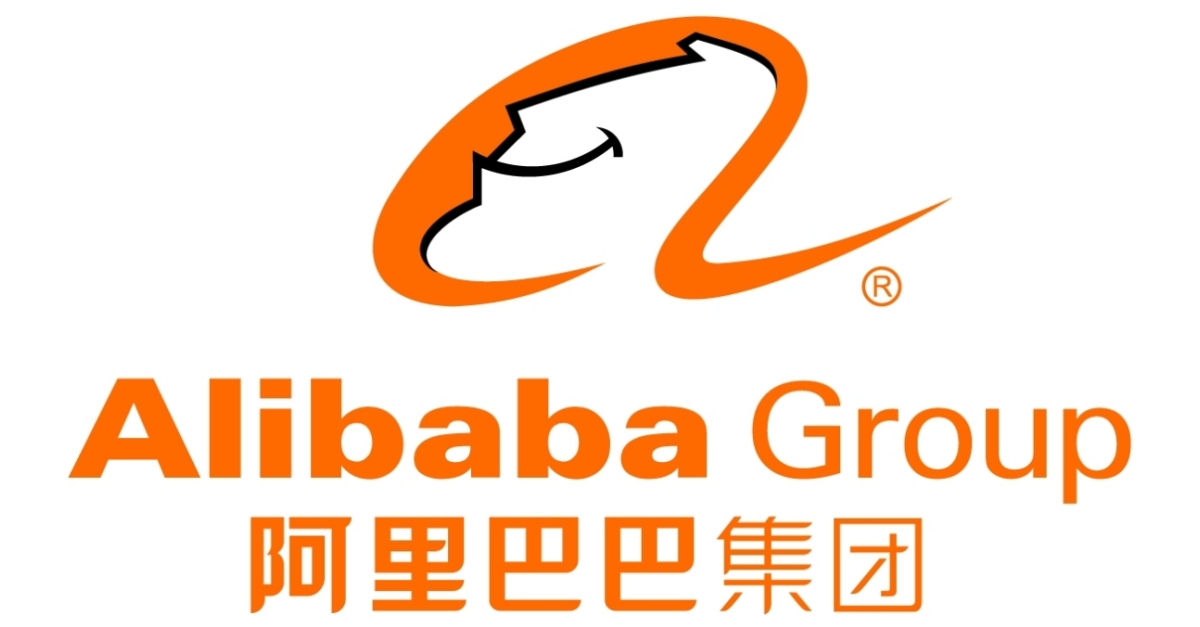

Alibaba Group Holdings (BABA) provides internet infrastructure, e-commerce, online financial and internet content services through its subsidiaries. The companies market cap is $609.607 Billion, with a PE ratio of 26.054. It has around $70 Billion on cash with $54.81 Billion in debt, with gross profits coming in around $40 Billion.
Alibaba has approximately a 33% stake in the Ant Group and incorporates Taobao and Alipay within a financial ecosystem to facilitate online business and commerce. The western equivalent would be to incorporate eBay, PayPal, Google and Amazon under one umbrella group of companies.
Due to the close relationship with Alibaba holding a large stake in Ant Group, the failed IPO marked the top in the BABA share price and the start of the subsequent retracement.
Last month Alibaba sent a letter to its customers and the community, explaining that the group had received a fine from the State Administration for Market Regulation (SAMR) of the People’s Republic of China. The Chinese government imposed a $2.8 Billion fine giving reasons that the Alibaba Group had violated anti-monopoly regulation. The fine is 4% of Alibaba’s total 2019 sales in China, which was 456 billion yuan, or over $69 billion. The news sent the Alibaba (BABA) share price around 10% lower to date.
Value investors like Mohnish Pabrai and Charlie Munger have stakes in Alibaba and Cathie Wood’s Ark investment is famously also involved in the stock. For the first time ever, the fiscal results showed operating losses of 7.7 billion yuan. A major contributor to the loss was the antitrust fine that Chinese regulators slapped on the company. Without the fine, it would have reported an operating profit of 10.6 billion yuan.
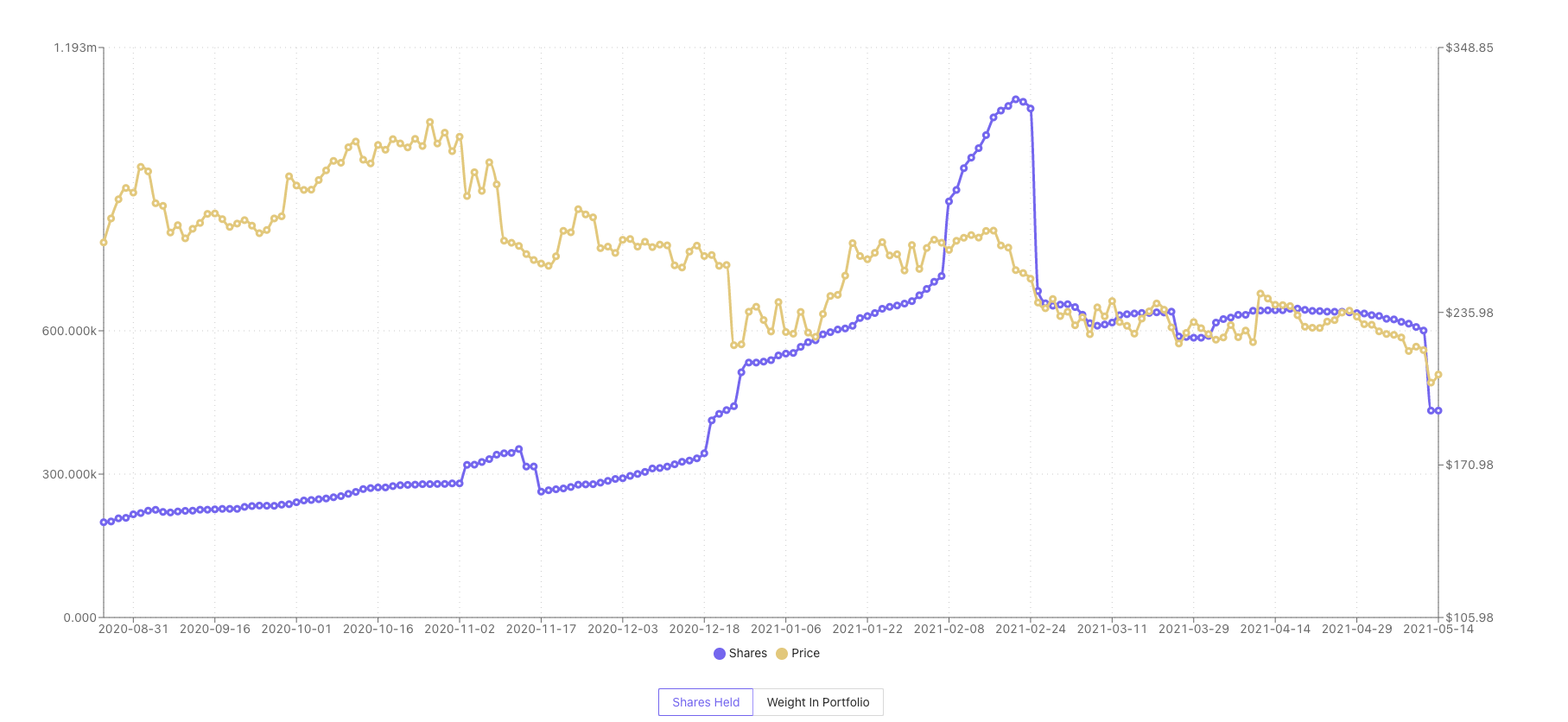

With the drop in price Cathie Wood’s investment has decreased quite significantly and last week her funds sold more reducing the weighting of BABA in the overall portfolio significantly.
On the back of the earnings reports, Alibaba CEO Daniel Zhang commented, “We remain very excited about the growth of China’s consumption economy, which is benefiting from the acceleration of digitalization in all aspects of life and work”.
As the drop in operating profits was not a fundamental change, but due to a one-off event, the drop in share price is gaining the interest of retail value buyers. The average analyst’s price target is $307.96 for the BABA shares, and with the current share price at $209.460 the upside potential is 47%.
See real-time quotes provided by our partner.
Looking at a daily time frame chart the momentum and price action is clearly to the downside. The 20, 50 and 200-period Exponential Moving Averages are stacked under one another with the faster averages curling downwards.
The acceleration from the December 2018 lows to the November 2020 highs, ramped up exponentially during the COVID-19 pandemic, as online retailing and everything that Alibaba Group offers, became more widely used to the point of being a new necessity in a COVID pandemic environment. It could be assumed if Ant Group had not fallen foul to the Chinese regulators, it is conceivable the continued rise in price would have carried on.
Taking our cues from the likes of Pabrai, Munger and Woods, an opportunity to buy the BABA stock is approaching. Investors will have their eye on the 61.8% retracement level of the move from 2018 – 2020, which comes in at $202.20, just below the current price.
There is also a rising trend line from 2018 through the March 2020 pandemic lows which is currently acting as support.
Other Chinese tech giants such as Baidu and JD.com have suffered a similar fate, with their price per share dropping from the February spike high. For Baidu, the 20.6% run-up in February 2021 was on investor excitement in the company’s entry into the Electric Vehicle space. Baidu is often compared to Google but after Q4 results which were posted in February 2021, the overall tech sector fell despite overall impressive quarterly results.
See real-time quotes provided by our partner.
BIDU share price is currently trying to hold on to the 61.8% retracement around $186.35 but the fact that price is under the 20,50 and 200 period moving averages on a daily time frame, suggests that the momentum and price action have some way to go before bullish momentum buyers step back in with any conviction.
See real-time quotes provided by our partner.
JD shares are doing seemingly better if taking into consideration the entire move higher from the 2018 lows. Though if starting from the March 2020 pullback, the price has also fallen around 61.8% from the highs.
There is an ETF that tracks all 3 of these large-cap Chinese tech stocks as well as a lot more. The iShares Trust – iShares MSCI China ETF is an exchange-traded fund launched by BlackRock, Inc. It is managed by BlackRock Fund Advisors.
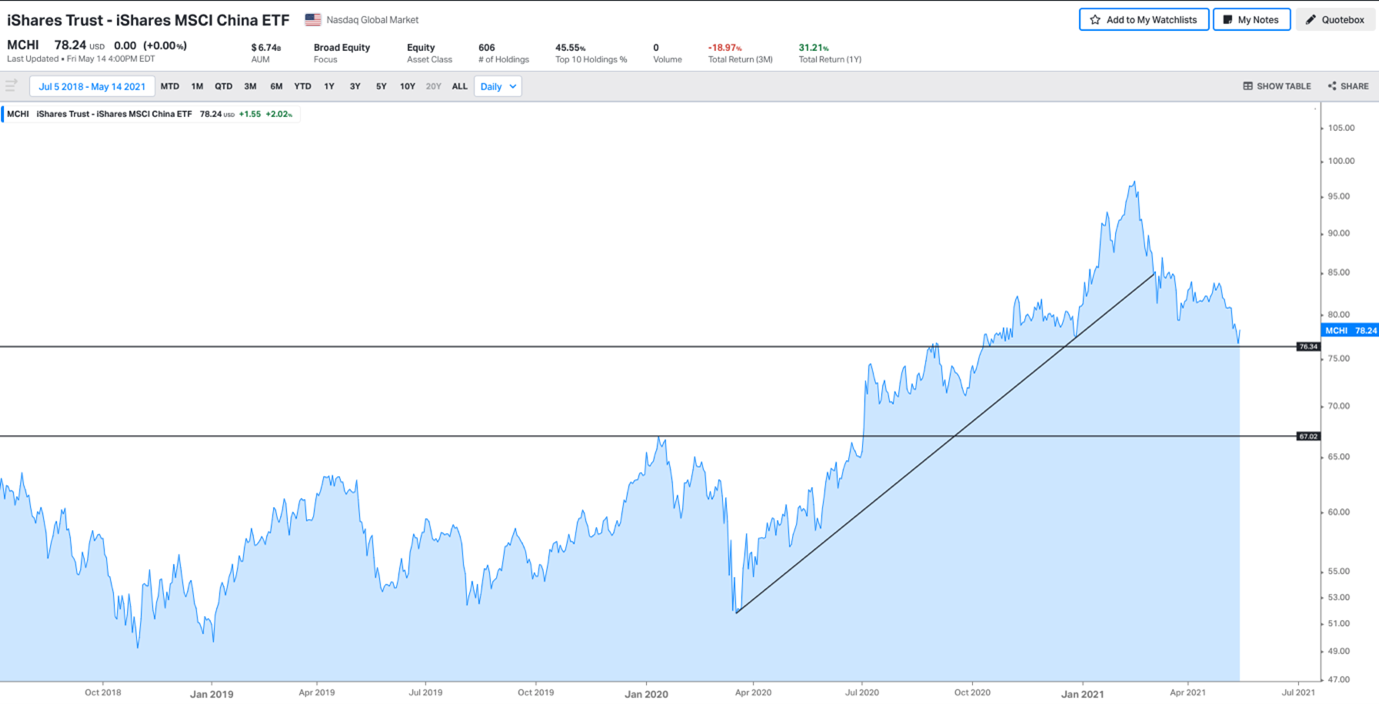

The fund invests in the public equity markets of China. The chart above shows that Chinese stocks have on aggregate suffered from a 30% pullback from their highs, representing a healthy correction for value investors.
For those looking for a discount, with a 47% upside now could be a time to hold your nose and grab a few shares in BABA. Investors who are looking for a more conservative approach, a few things will need to happen. For starters, we need to see that BABA and the other Chinese tech companies can still expand earnings as the pandemic disruptions ease and that they have not just brought earnings forward. Secondly, for the technical entries, a change in momentum and price action is needed. A higher-high, following a higher swing low, would be the signal that the turn was potentially in. Thirdly, there needs to be a softening from the Chinese authorities towards these big tech firms and for the likes of Jack Ma to be humbler in public towards the regulators.
There is a move towards more cooperation and integration between the largest Chinese platforms for commerce and payments, and there is a shift towards the digital and cryptocurrencies being spearheaded by China’s PBoC. So overall things should get better and maybe the MSCI China ETF will signal the overall turn the quickest. For BABA specifically, a sweep of the $200 lows or a break and hold above the $228 will signal the next potential buying opportunities.

